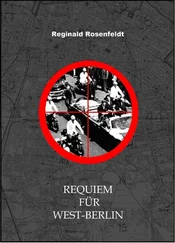Isaiah Berlin - Russian Thinkers
Здесь есть возможность читать онлайн «Isaiah Berlin - Russian Thinkers» весь текст электронной книги совершенно бесплатно (целиком полную версию без сокращений). В некоторых случаях можно слушать аудио, скачать через торрент в формате fb2 и присутствует краткое содержание. Год выпуска: 0101, Жанр: Старинная литература, на русском языке. Описание произведения, (предисловие) а так же отзывы посетителей доступны на портале библиотеки ЛибКат.
- Название:Russian Thinkers
- Автор:
- Жанр:
- Год:0101
- ISBN:нет данных
- Рейтинг книги:3 / 5. Голосов: 1
-
Избранное:Добавить в избранное
- Отзывы:
-
Ваша оценка:
- 60
- 1
- 2
- 3
- 4
- 5
Russian Thinkers: краткое содержание, описание и аннотация
Предлагаем к чтению аннотацию, описание, краткое содержание или предисловие (зависит от того, что написал сам автор книги «Russian Thinkers»). Если вы не нашли необходимую информацию о книге — напишите в комментариях, мы постараемся отыскать её.
Russian Thinkers — читать онлайн бесплатно полную книгу (весь текст) целиком
Ниже представлен текст книги, разбитый по страницам. Система сохранения места последней прочитанной страницы, позволяет с удобством читать онлайн бесплатно книгу «Russian Thinkers», без необходимости каждый раз заново искать на чём Вы остановились. Поставьте закладку, и сможете в любой момент перейти на страницу, на которой закончили чтение.
Интервал:
Закладка:
confusion on the left as a result of being unexpectedly faced with its
own image in nihilism, which pleased some and horrified others, he
reproaches the author for being altogether too anxious not to be unjust
to Bazarov, and consequently for representing him always in the best
possible light. There is such a thing, he says, as being too fair: this
leads to its own brand of distortion of the truth. As for the hero,
Bazarov is represented as being brutally candid: that is good, very good;
he believes in telling the whole truth, however upsetting to the poor,
gentle 'Kirsanovs, father and son, with no respect for persons or
circumstances: most admirable; he attacks art, riches, luxurious living;
yes, but in the name of what? Of science and knowledge? But, Katkov
declares, this is simply not true. Bazarov's purpose is not the discovery
of scientific truth, else he would not peddle cheap popular tracts
Biichner and the rest-which are not science at all, but journalism,
materialist propaganda. Bazarov (he goes on to say) is not a scientist;
this species scarcely existli in Russia in our time. Bazarov and his
fellow nihilists are merely preachers: they denounce phrases, rhetoric,
inflated language- Bazarov tells Arkady not to talk so 'beautifully'but only in order to substitute for this their own political propaganda; they offer not hard scientific facts, in which they are not interested,
with which, indeed, they are not acquainted, but slogans, diatribes,
radical cant. Bazarov's dissection of frogs is not genuine pursuit of
the truth, it is only an occasion for rejecting civilised and traditional
values which Pavel Kirsanov, who in a better-ordered society-say
England-would have done useful work, rightly defends. Bazarov and
his friends will discover nothing; they are not researchers; they are
mere ranters, men who declaim in the name of a science which they
do not trouble to master; in the end they are no better than the
ignorant, benighted Russian priesthood from whose ranks they mostly
spring, and far more dangerous.•
Herzen, as always, was both penetrating and amusing. 'Turgenev
1 ibid.
1 'Roman Turgeneva i ego kritiki', R•sslii fltllflil, May 1 86z, pp. 393"
.f.Z6, and '0 nashem nigilizme. Po povodu romana Turgeneva', ibid., July
1 86z, pp. 4oz-z6.

FATHERS AND C H I LDREN
was more of an artist in his novel than people think, and for this
reason lost his way, and, in my opinion, did very well. He wanted
to go to one room, but ended up in another and a better one.'1 The
author clearly started by wanting to do something for the fathers, but
they turned out to be such nonentities that he 'became carried away
by Bazarov's very extremism; with the result that instead of Bogging
the son, he whipped the fathers'.21 Herzen may well be right: it may
be that, although Turgenev does not admit this, Bazarov, whom the
author began as a hostile portrait, came to fascinate his creator to such
a degree that, like Shylock, he turns into a figure more human and a
great deal more complex than the design of the work had originally
allowed for, and so at once transforms and perhaps distorts it. Nature
sometimes imitates art: Bazarov affected the young as Werther, in the
previous century, influenced them, like Schiller's The Rohhers, like
Byron's Laras and Giaours and Childe Harolds in their day. Yet these
new men, Herzen added in a later essay, are so dogmatic, doctrinaire,
jargon-ridden, as to exhibit the least attractive aspect of the Russian
character, the policeman's-the martinet's-side of it, the brutal
bureaucratic jackboot; they want to break the yoke of the old despotism,
but only in order to replace it with one of their own. The 'generation
of the 4os', his own and Turgenev's, may have been fatuous and weak,
but does it follow that their successors-the brutally rude, loveless,
cynical, philistine young men of the 6os, who sneer and mock and
push and jostle and don't apologise-are necessarily superior beings?
What new principles, what new constructive answers have they
provided? Destruction is destruction. It is not creation. 8
In the violent babel of voices aroused by the novel, at least five
attitudes can be distinguished.& There was the angry right wing which
thought that Bazarov represented the apotheosis of the new nihilists,
and sprang from Turgenev's unworthy desire to Ratter and be accepted
by the young. There were those who congratulated him on successfully exposing barbarism and subversion. There were those who denounced him for his wicked travesty of the radicals, for providing
reactionaries with ammunition and playing into the hands of the
1 A. I. Herzen, 'Eshche raz Bazarov', So6ra11it SIJchilltllii, vol. zo, p. 339·
I ibid.
a 81J6r1111it so&hi11t11ii, vol. 1 1, p. 3 5 1.
& For a full analysis of the immediate reaction to the novel see 'Z' (E. F.
Zarin), 'Ne v brov', a v glaz', Bi6/iottlta dlya chlt11iya, 1 86z No 4.. pp. z 1-5 5·
..
R U SS IAN T H INKERS
police; by them he was c;alled renegade and traitor. Still others, like
Dmitry Pisarev, proudly nailed Bazarov's colours to their mast and
expressed gratitude to Turgenev for his honesty and sympathy with
all that was most living and fearless in the growing party of the future.
Finally there were some who detected that the author himself was
not wholly sure of what he wanted to do, that his attitude was genuinely
ambivalent, that he was an artist and not a pamphleteer, that he told
the truth as he saw it, without a clear partisan purpose.
This controversy continued in full strength after Turgenev's death.
It says something for the vitality of his creation that the debate did
not die even in the following century, neither before nor after the
Russian Revolution. Indeed, as lately as ten years ago the battle was
still raging amongst Soviet critics. Was Turgenev for us or against us?
Was he a Hamlet blinded by the pessimism of his declining class, or
did he, like Balzac or Tolstoy, see beyond it? Is Bazarov a forerunner
of the politically committed, militant Soviet intellectual, or a malicious
caricature of the fathers of Russian communism? The debate is not
over yet.1
1 The literature, mostly polemical, is very extensive. Among the most
representative essays may be listed: V. V. Vorovsky's celebrated 'Dva nigilizma:
Bazarov i Sanin' (1909), Sochin�niya (Moscow, 193 I), vol. z, pp. 74-Ioo;
V. P. Kin in Lit�ratura i mark1izm, vol. 6 (Moscow, I 9z9), pp. 7 I-I I6;
L. V. Pumpyansky, '0111y i J�ti. lstoriko-literatumyi ocherk', in I� S.
Turgenev, Sochin�niya (Moscow/Leningrad, I939), vol. 6, pp. 167-86; I. K.
lppolit, unin D Turg�ntfl� (Moscow, I93.f.); I. I. Veksler, /. s. Turg�ntfl ;
politichukay• 6or'6a JAtJtituJyatyk!t goJIJfJ (Moscow/Leningrad, 1 93 5); V. A.
Arkhipov, in Ruukaya lituatura, 1958 No I, pp. I 3z-6:z; G. A. Byaly, in
NIJfJyi mir, Moscow, I958 No 8, pp. :z5 5-9; A. I. Batyuto, in /. 8. Turg�nto
(I8I8-I883-I958): Jtat'i i mat�rialy (Orel, I96o), pp. 77-95; P. G.
Pustovoit, Roman /. 8. Turg�ntoa Otllly i deti i iJtinaya 6or' 6a 6okh godot:J
XIX r;da (Moscow, 1 96o); N. Chernov in Yopro1y lit�ratury, Moscow,
1961 No 8, pp. I 88-93; William Egerton in Ruukaya lit�ratura, I967 No I,
PP· I49-54·
This represents a mere sample of the continuing controversy, in which
Читать дальшеИнтервал:
Закладка:
Похожие книги на «Russian Thinkers»
Представляем Вашему вниманию похожие книги на «Russian Thinkers» списком для выбора. Мы отобрали схожую по названию и смыслу литературу в надежде предоставить читателям больше вариантов отыскать новые, интересные, ещё непрочитанные произведения.
Обсуждение, отзывы о книге «Russian Thinkers» и просто собственные мнения читателей. Оставьте ваши комментарии, напишите, что Вы думаете о произведении, его смысле или главных героях. Укажите что конкретно понравилось, а что нет, и почему Вы так считаете.










